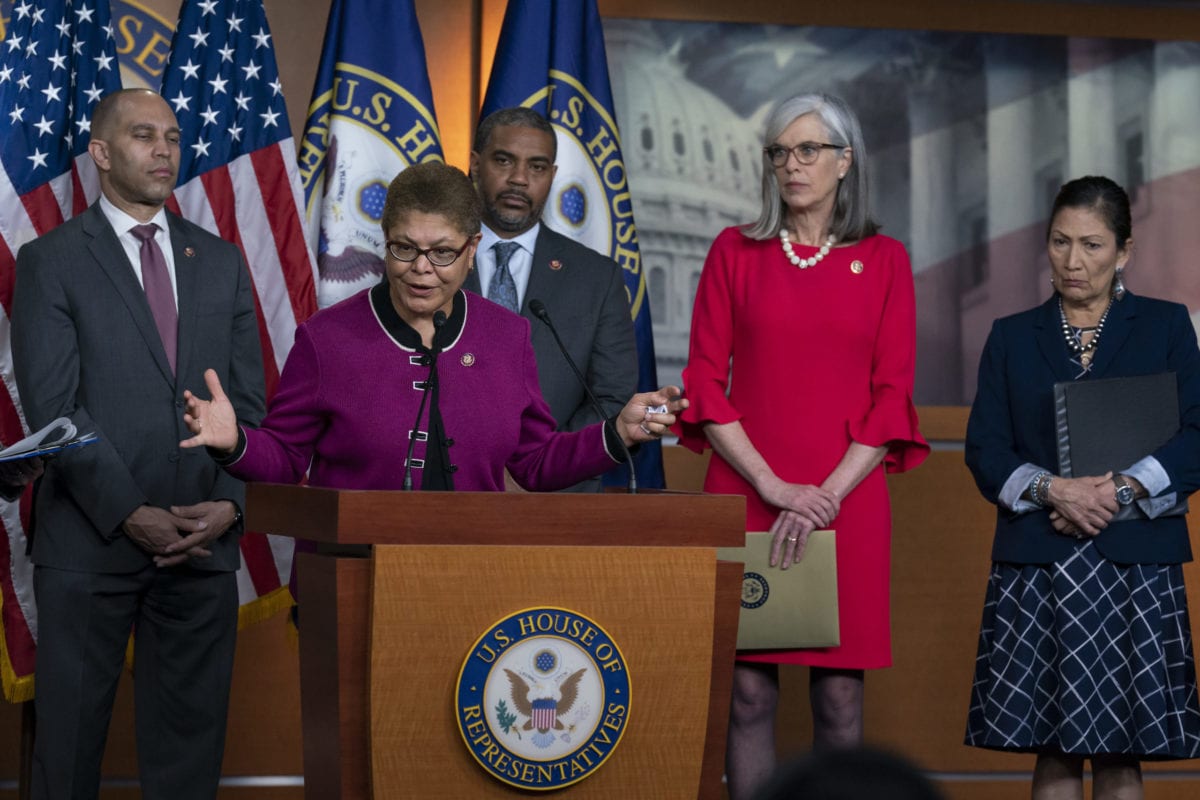This story was co-published with The Washington Post.
The chairwoman of the Congressional Black Caucus is endorsing Joe Biden, framing the former vice president’s strong support among African Americans as “a survival vote.”
“I cannot say it enough: Black women are concerned about saving this country,” said Rep. Karen Bass (D-Calif.). “This is not about who I’m falling in love with. This is about who is going to protect my children and grandchildren.”
Bass said she was reluctant to back Biden earlier when Sens. Cory Booker (N.J.) and Kamala D. Harris (Calif.), both CBC members, were in the 2020 Democratic primary. With their exits, she said Biden is now the candidate best positioned to oust President Trump in November — cited as the top priority of Democrats and particularly Black voters, the base of the party whose support is seen as critical to the path to the nomination.
“That is the most important thing in our country,” Bass said. “What is at risk here is going to impact the next two generations.”
The 54 members of the CBC make up nearly a quarter of the House’s Democratic majority. Biden has shored up his support with the group since the exits of Harris and Booker, who both endorsed him after his decisive Super Tuesday victories.
More than three dozen members of the caucus — 16 Black women and 21 Black men — have now endorsed Biden, a seven-term U.S. senator from Delaware who was the understudy for the first Black president, Barack Obama.
Many can point to personal relationships with the former vice president going back years — none more prominent or evident than Majority Whip James E. Clyburn of South Carolina, who gave an emotional endorsement of Biden ahead of the South Carolina primary that many cite as the catalyst to the former vice president’s dominant performance across the South in the primary contests that followed.
Sen. Bernie Sanders (I-Vt.), who first came to Congress in 1991, has not made similar inroads and done the same outreach, Bass said.
Any candidate running for president should work to build relationships with the group, visiting their districts and getting to know the issues important to them, she said.
“Biden didn’t do that because he already had the relationships,” she said. “They know him. I don’t think you introduce yourself when you’re running.”
Bass said that about a year ago, the Sanders campaign reached out to her office to invite her to a dinner but it was last-minute and she couldn’t attend. The campaign didn’t follow up, she said.
But Bass said she’s had several conversations with Biden since he launched his campaign last spring. She welcomed him to a South Central Los Angeles neighborhood in her district ahead of Super Tuesday, where he ate lunch at Roscoe’s House of Chicken and Waffles and was at ease.
“You would’ve thought he’d been there 20 times, the way he was able to easily interact with people, the way he was able to communicate empathy, concern and interest,” she said.
Bass said she has laid out priorities such as criminal justice and foster care to Biden but is also encouraged by his commitment to appoint a Black woman to the Supreme Court — a pledge he made on the debate stage in South Carolina — and his willingness to select a female running mate should he become the nominee.
“I didn’t talk to him specifically about that, but at some point, the United States needs to catch up with the rest of the world,” Bass said. “Clearly there is not going to be a woman nominee, so it would be great if there was a woman vice presidential candidate, it would be great if it was a woman of color and absolutely if it was an African American woman.”






